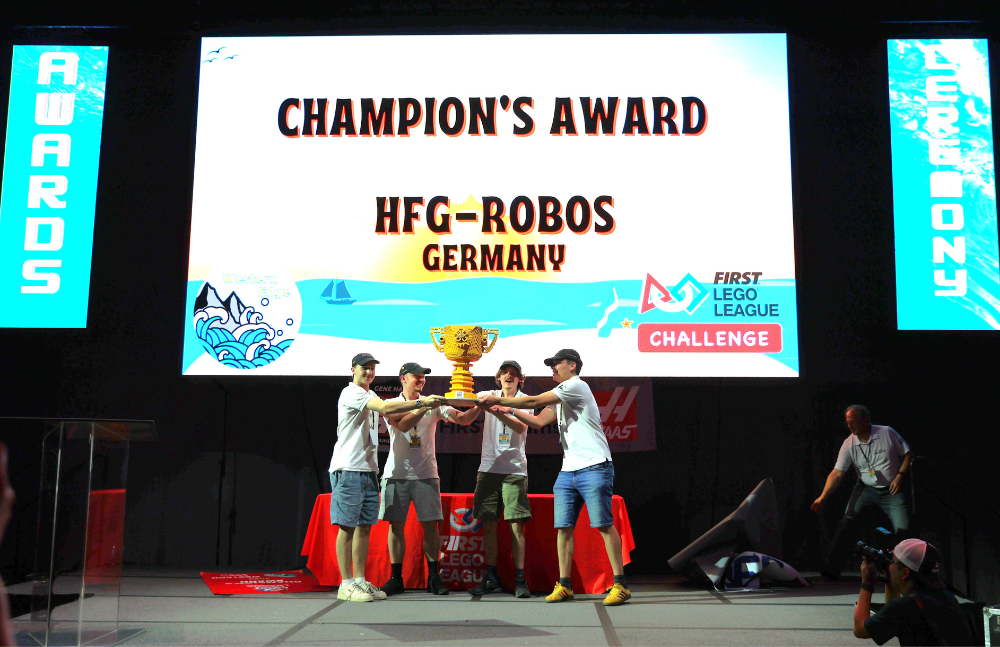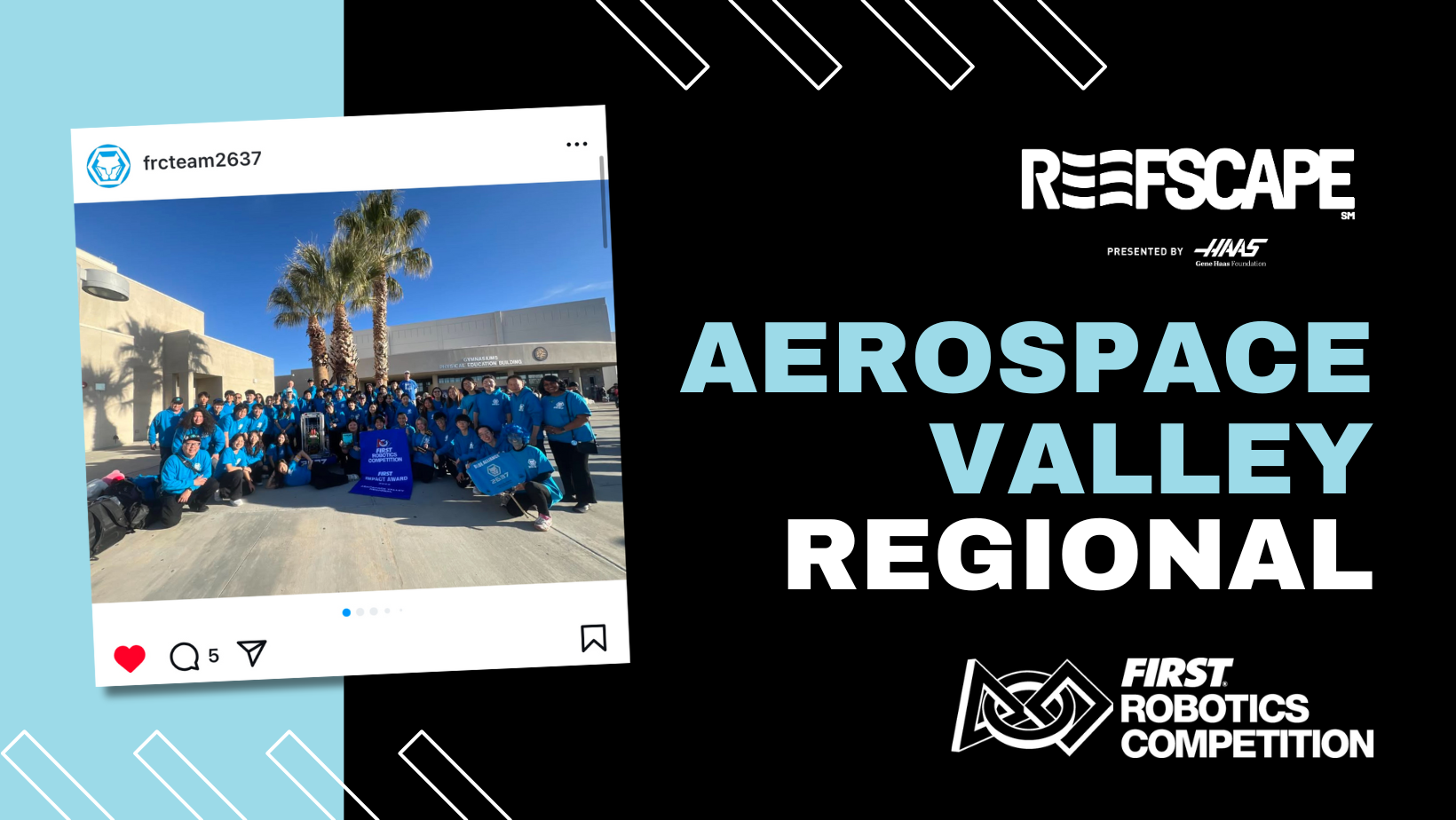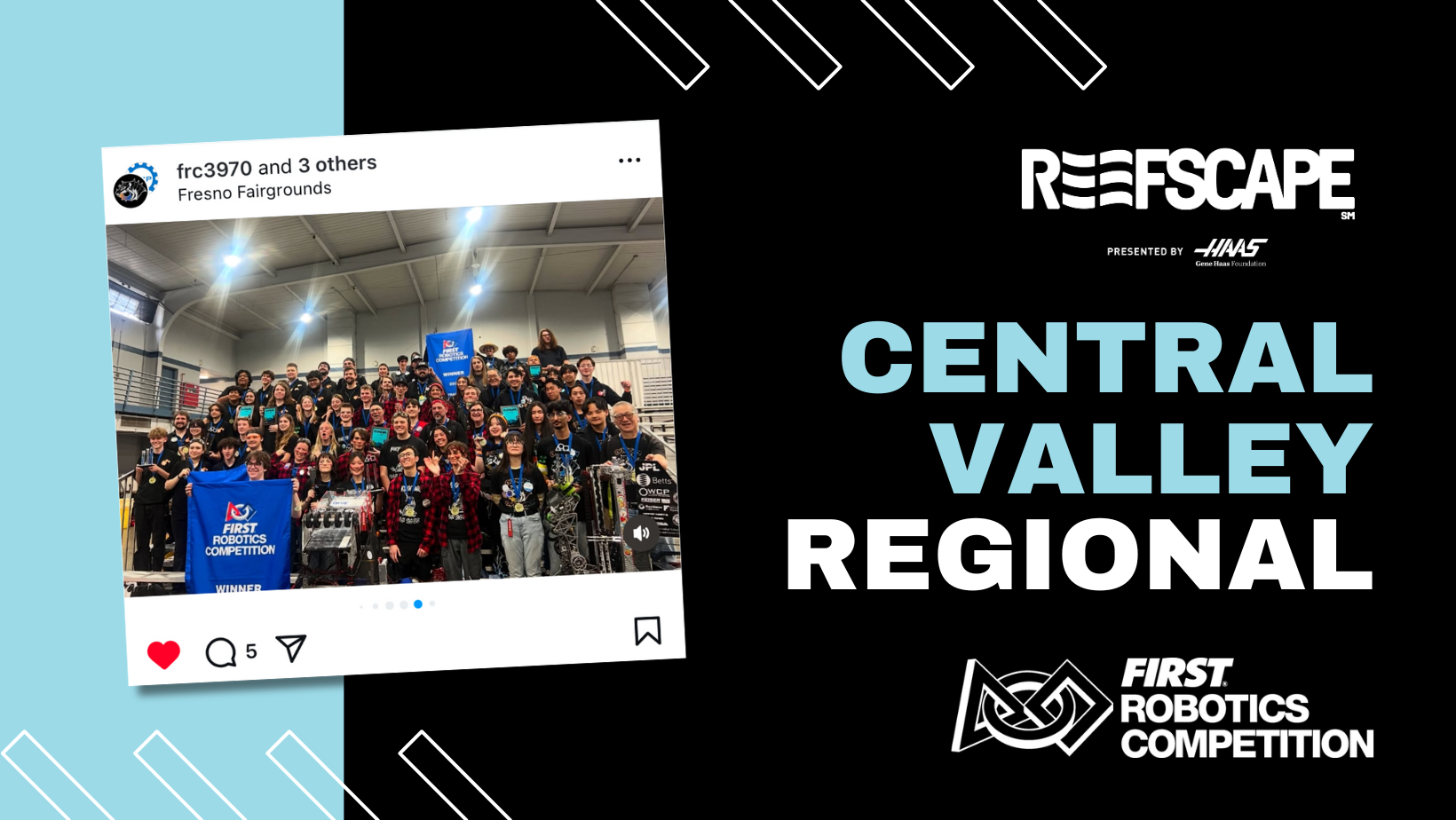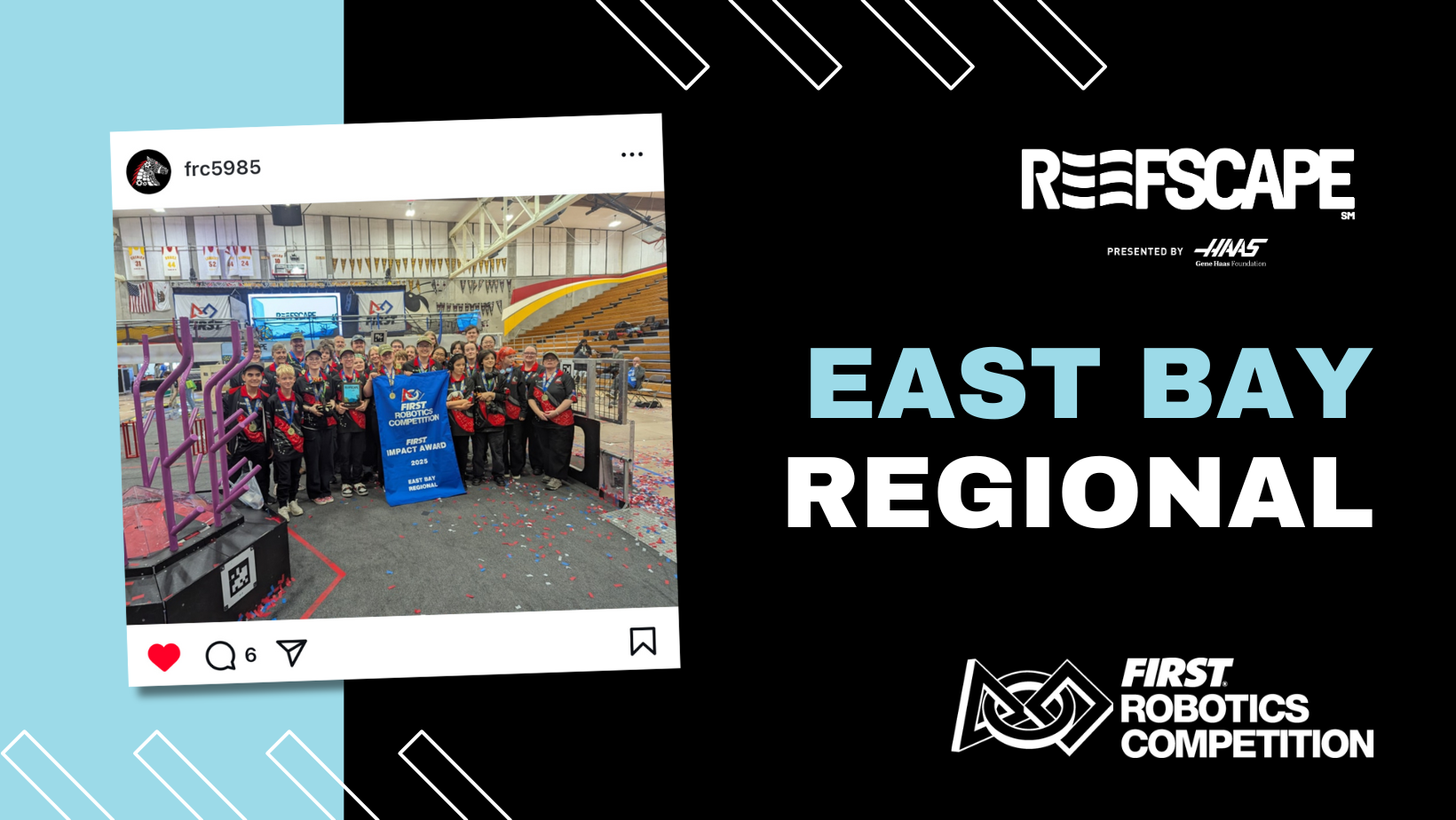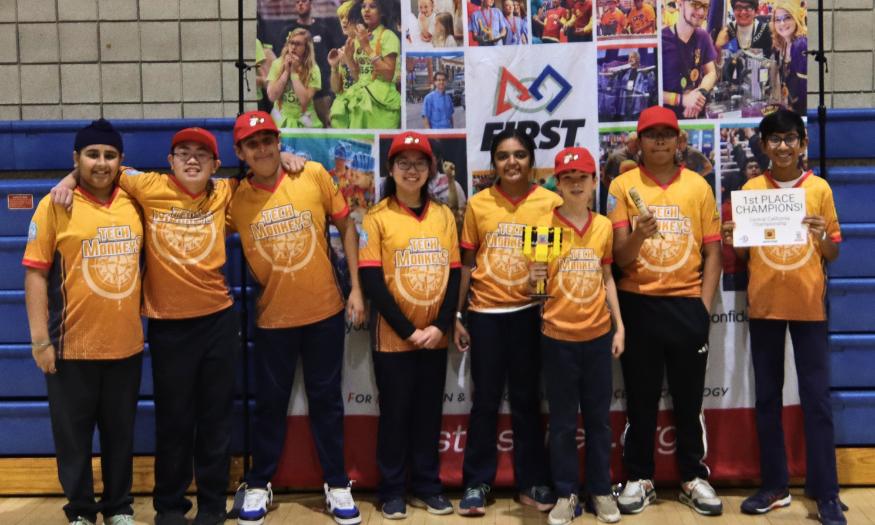
2025 FLL Championship & Explore Festival – California Central
The Central California Championship for FIRST LEGO League Challenge took place on December 6th in Clovis.
36 FIRST LEGO League Challenge teams advanced from 3 qualifying tournaments to compete at the Central California Championship. “Indiana Jones” was the emcee for all of the festivities. On display were retired (and current) LEGO Education robot sets, an older LEGO trophy, and a prior FIRST LEGO League table throw to celebrate the FIRST AGE season. Teams enjoyed a gym-wide dance party while awaiting the awards ceremony.
The following 3 teams earned those spots:
- 1st Place Champions: Team 59873 – Tech Monkeys (Carden School of Fresno, Fresno) – advancing to the World Festival
- 2nd Place Champions: Team 61079 – Orcabotics (Cedarwood Elementary, Clovis) – advancing to WAFFLE
- 3rd Place Champions: Team 61869 – Fugman Code Ninjas (Fugman Elementary, Fresno)
13 FIRST LEGO League Explore teams were also able to participate in the Central California Championship Festival, while enjoying games and activities.






1st Place Champion
59873 – The Tech Monkeys
Advancing to World Festival in Houston in April 2026
2nd Place Champion
61079 – Orcabotics
Advancing to W.A.F.F.L.E
3rd Place Champion
61869 – Fugman Code Ninjas
1st Place Core Values
62948 – The Amazing Mixe LEGO Team
2nd Place Core Values
58775 – Bengal Bots
3rd Place Core Values
52475 – Kastner Robotics
1st Place Robot Performance
59873 – The Tech Monkeys
2nd Place Robot Performance
68334 – Wired Warriors
3rd Place Robot Performance
61079 – Orcabotics
1st Place Innovation Project
2nd Place Innovation Project
70742 – Hyper Hard Hats
3rd Place Innovation Project
63035 – ROBO RAM-Page
1st Place Robot Design
61861 – Marlin Voyager 2032
2nd Place Robot Design
70752 – Enginuggies
3rd Place Robot Design
68334 – Wired Warriors
Peer Award
71527 – The Robot Ninjas



THANK YOU MENTORS AND VOLUNTEERS!
None of the teams’ successes would have been possible this season without those special mentors who have spent hours each week with your team. And this event would not be possible without the support of our volunteers.



